Aug
2
2013
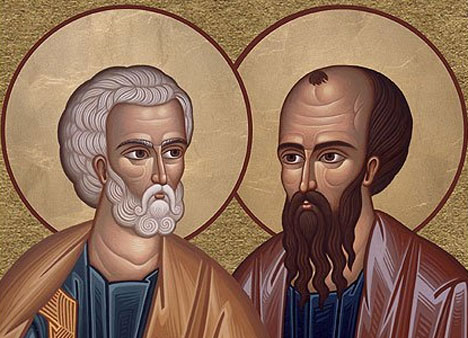
Paul’s Leviticus
“This is where he picks up the fivefold Covenant structure and turns ‘the right hand of fellowship’ into a set of holy knuckledusters.”
This post has been refined by fire and included in a new book, The Shape of Galatians.
Continue reading
Comments Off | tags: Circumcision, Food laws, Galatians, Hebrews, Leviticus, Literary Structure, Moses, Paul | posted in Bible Matrix, Biblical Theology, Ethics, The Last Days
Dec
12
2011
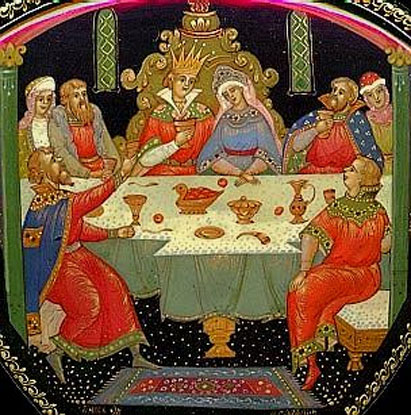
“So I commended
…..enjoyment,
……….because a man
……….has nothing better
……………under the sun
…..…..than to eat,
…..drink,
and be merry…”
(Eccles. 8:15)
If you love the chiasmi of the Bible, why not arrange a “Covenant” Christmas banquet using the Bible Matrix?*
Continue reading
Comments Off | tags: Albert Garlando, Christmas, Food laws, Humour, Revelation, Worship | posted in Bible Matrix, Biblical Theology, Christian Life
Dec
14
2010
or God is a Foodie
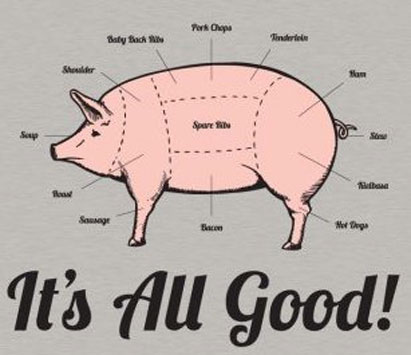
The Mosaic dietary laws were temporary. Just as a Nazirite made a temporary vow for the purpose of sanctification for holy war, so Israel’s purpose as a nation of holy warriors included certain abstinences prescribed by God. Once the war was over, the prohibitions were removed. “Bridal food” (the Feast of Tabernacles) was back on the menu in the first century.
The Nazirite vow was a symbolic form of death and resurrection, of the bridegroom going into the grave (short hair), slaying the serpents, and emerging from the chamber with His bride (long hair), whom He then presented to the Father. [1] The prohibition on the Tree of Knowledge was a temporary one. It began Adam’s holy war, but he broke the vow, failed to rescue the bride and was expelled from the Lord’s table. [2]
Continue reading
11 comments | tags: Communion, Fasting, Food laws, Genesis, Jacob, James Jordan, Leviticus, Nazirite, Robert Farrar Capon, Typology | posted in Biblical Theology, Christian Life, Quotes
Sep
30
2010
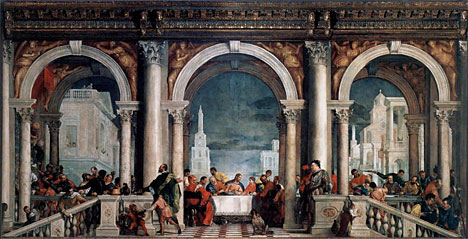
Cooking as Eschatology
But while they still did not believe for joy, and marveled, He said to them, “Have you any food here?” So they gave Him a piece of a broiled fish and some honeycomb. And He took it and ate in their presence.
NOTE: THIS POST HAS BEEN REMIXED AND INCLUDED IN GOD’S KITCHEN.
Thanks to Doug Wilson’s recommendations of it, one of the books I took to hospital was The Supper of the Lamb by Robert Farrar Capon. It is a mouth-watering fusion of cookbook and theology, pushing the idea of multi-disciplinary insights to the outer limit. But then, we moderns don’t have such biblical horizons, do we? We refuse to see the world as the Bible reveals it to us.
Continue reading
1 comment | tags: Daniel, Doug Wilson, Esther, Food laws, James Jordan, Leviticus, Noah, Robert Farrar Capon | posted in Apologetics, Bible Matrix, Biblical Theology, Christian Life, Creation, Quotes, The Restoration Era, Totus Christus
Jan
20
2010

Here’s a charming quote discovered and posted by Doug Wilson over a year ago. Being exactly the opposite of the so-called “party” image portrayed on TV and in glossy mags, it kind of stuck with me. It is not sinful like they are, yet it is so “incorrect” that it must be true.
Continue reading
2 comments | tags: David, Doug Wilson, Ecclesiology, Esther, Food laws, Postmillennialism, Robert Farrar Capon, Saul, Solomon | posted in Biblical Theology, Christian Life
Jan
10
2010

or Being a Truly Impure Thinker
“If you love me, you will keep my commandments.” John 14:15
NOTE: THIS POST HAS BEEN REMIXED AND INCLUDED IN GOD’S KITCHEN.
You must be logged in to see the rest of this post.
Join now for a year for $15!
Peter Leithart wrote this week:
How do we know things? Experimentation, deduction, observation?
In Genesis, knowledge is first associated with two things – with food and with sex. There is a tree of the knowledge of good and evil, whose fruit opens the eyes of Adam and Eve so that they perceive that they are naked. Then Adam knows his wife and she conceives Cain.
If we want a strictly biblical answer: Knowledge is eating. Knowledge is sex.
Continue reading
Comments Off | tags: Add new tag, Communion, Eugen Rosenstock-Huessy, Food laws, Maturity, Moses, Peter Leithart, Solomon, Wisdom | posted in Biblical Theology, Christian Life
Jun
8
2009
or Touch Not, Taste Not, Handle Not II
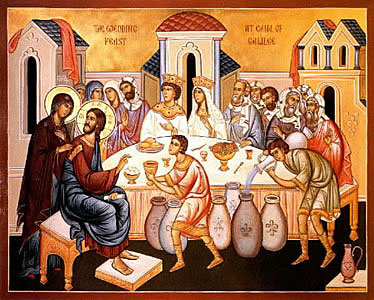
The dietary Laws given to Moses were an expansion of the command given to Adam. It is the self-denial of priestly obedience to God. Adam wasn’t ready for the tree of judicial responsibility (kingdom) but he seized it.
In the greater Bible picture, Israel’s history (from Moses) is this period of priestly obedience. But Jesus came and reversed Adam’s failure. Consequently the dietary laws are revoked, and with greater maturity, the people of God (through the first century death of Israel and her resurrection as the church) now, like Jesus, have the judicial wisdom of the Spirit, and the power to eat unclean things (Gentiles), consume them and make them clean. Only the power of resurrection can enter a room with a corpse in it, touch lepers and feast on Gentile meats and not be made unclean, but instead make the unclean clean by consuming it. This is the power of the New Covenant.
Continue reading
Comments Off | tags: Babylon, Crystal Sea, Daniel, Esther, Food laws, Postmillennialism, Priesthood, Resurrection, Scavengers, Tabernacle | posted in Biblical Theology
Apr
15
2009
“We shall be gods”
 “Therefore, if you died with Christ from the basic principles of the world, why, as though living in the world, do you subject yourselves to regulations — “Do not touch, do not taste, do not handle,” which all concern things which perish with the using — according to the commandments and doctrines of men? These things indeed have an appearance of wisdom in self-imposed religion, false humility, and neglect of the body, but are of no value against the indulgence of the flesh.” Colossians 2:20-23
“Therefore, if you died with Christ from the basic principles of the world, why, as though living in the world, do you subject yourselves to regulations — “Do not touch, do not taste, do not handle,” which all concern things which perish with the using — according to the commandments and doctrines of men? These things indeed have an appearance of wisdom in self-imposed religion, false humility, and neglect of the body, but are of no value against the indulgence of the flesh.” Colossians 2:20-23
As with nearly everthing in the Bible, the roots of this go back to early Genesis.
Continue reading
1 comment | tags: Adam, Bible history, Daniel, Esther, Food laws, Genesis | posted in Biblical Theology

































